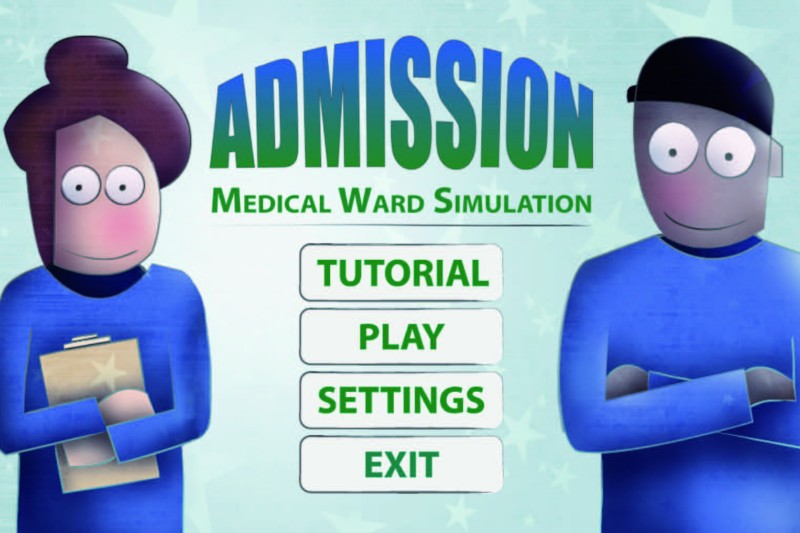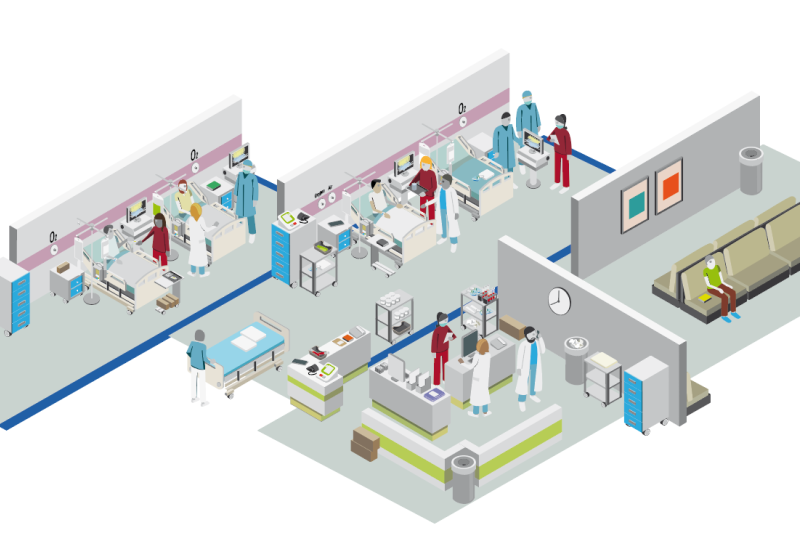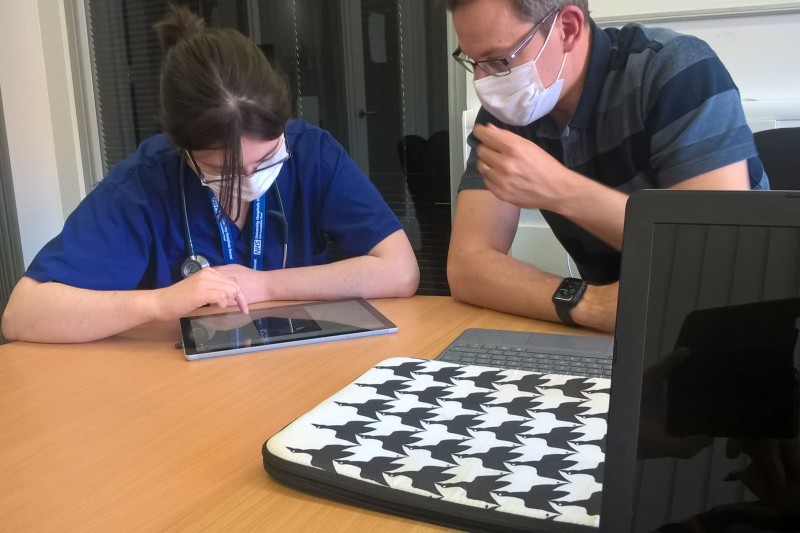A new medical simulation game is helping junior doctors prepare for the competing pressures and demands of working on a hospital ward.

Admission has been created by Bournemouth University (BU) in collaboration with University Hospitals Dorset (UHD) as an immersive and interactive way to help train doctors.
New patients are randomly generated for each game with different conditions, ages, and medical histories - meaning that each training session is unique.
As in real life, players face time pressures and competing demands for their attention, as they work against the clock to diagnose and treat patients before they start to deteriorate.
The game currently features a range of different conditions, include stroke, meningitis, and heart failure - and trainees must request different tests, treatments, and medications for multiple patients throughout their shift on a virtual ward.
At the end of each shift, players are scored and given feedback about how they can improve.
 The Admission virtual ward
The Admission virtual ward“With other training simulations, players end up repeating the same scenarios over and over again,” said Alain Simons, a Lecturer in Games Technology Programming at BU and Principal Investigator on the project.
“With Admission, every time you play the game you get put in a new situation that you as a junior doctor need to solve.
“By simulating these pressures in a safe environment, players can learn how to manage their time and attention during a shift – preparing them for the pressures of life on the ward.”
Admission has been developed in partnership with Dr Robert Willington, a Consultant in Acute Medicine at UHD.
Dr Willington said: “During my training, my experiences and observations gave me the opinion that when doctors make mistakes with diagnosis or treatment, it's rarely due to a lack of knowledge, but rather because they are busy keeping so many plates spinning with not enough time to think.
“I began to imagine a game or simulation that would recreate these conditions, both to investigate the effect size of task overload on clinician performance, but also to train doctors to deal with this challenge, making them safer clinicians.”
 Doctors testing the Admission game
Doctors testing the Admission gameAdmission is accessible via web browser and a prototype has been tested by junior doctors and consultants across four hospitals in southern England, with the feedback helping to inform future development of the platform.
Simons said: “This is a web-based solution, so it can be played on different computer systems and digital devices, which is important as the NHS has such variable equipment.
“The feedback so far has been very positive, and we are hoping to expand the testing across the country as we work on new versions of Admission.”
UHD has provided funding for further testing and development of the game, with the hope of eventually commercialising the product and making it available to NHS Trusts.
Dr Willington said: “Working with the team at BU has been amazing; development is quick and collaborative. Now, we have a first complete build of the simulation I spent so long imagining, and we are engaged at present with updating and improving it for roll out at UHD itself.
“It will be used as a training aide for junior doctors at UHD, and I believe it will help them immensely. We've had some great feedback from doctors and medical students who have been involved in testing, with most people finding it a compelling simulation of the pressures of real practice.”



